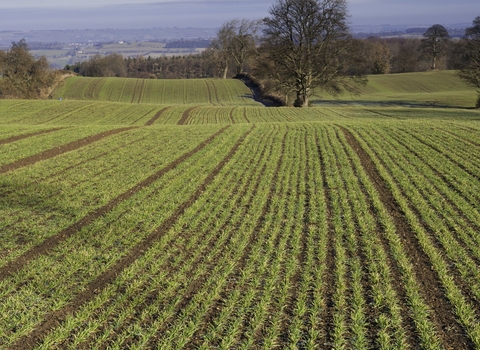When we think about restoring wildlife and the natural world, we often think about allowing our gardens to grow wilder, greening our cities, and helping nature reserves to flourish.
But the way we farm our fields has a huge impact on our natural world. After all, around 70% of UK land is used for agriculture. Food production is reliant on thriving natural systems to provide healthy soils, safe and plentiful water, beneficial pollinators, and a stable climate.
Biodiversity loss and climate change are the biggest threats to UK food production.
We need to help farmers to help nature.
Take a look at the state of nature where you are
What does this map show me?
This tool shows you what nature looks like near you and can demonstrate the impact farming has on precious wildlife and habitats when it is done in the wrong way.
Whilst intensive farming can affect many aspects of nature, in our map we’ve highlighted data on the below issues:
- Water quality: It's not just sewage which is polluting our rivers - agricultural pollution is actually the leading cause of harm to water quality , causing 40% of England's waters to fail quality standards. Chemicals used in farming run off fields and into waterways, along with manure that farmers have spread on their fields. When these substances run into rivers they contaminate the water with excessive phosphates that cause the growth of algae blooms, which then makes it difficult for other species to survive in the same waters.
- Climate change projections: Climate change is making the UK hotter and drier, with extreme weather more common – and this causes serious problems for farmers. For example, pests that usually die off in winter are surviving into the spring, allowing them to cause extra damage to farmers’ crops. Farmers too often turn to pesticides as way of dealing with this threat, but these chemicals harm the environment further. By reducing biodiversity, pesticides can contribute to poor soil quality, meaning that when heavy rainfall does arrive soils struggle to absorb the water and flooding becomes more likely. We’ve also highlighted current flood risk zones, to show those areas that will be most at risk.
How can we tackle these problems?
Intensive farming puts our natural systems under strain, and can have huge impacts for our wildlife and waterways – but farming doesn’t have to harm the natural world. Where farmers have use nature-friendly practices they can help our wildlife to thrive, whilst also producing food to feed the nation.
We know farming can be a tough job, and change is difficult. That is why we want the Government to ramp up support for more farmers to transition to these environmentally friendly methods.

